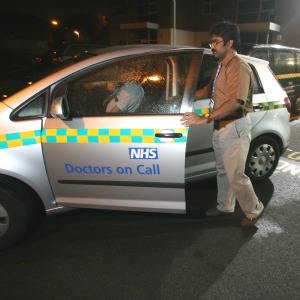Out-of-hours provider to offer GPs £15k to cover indemnity

An out-of-hours provider covering a large remote, rural area is set to offer £15,000 to new GP employees to cover indemnity in a bid to attract new salaried GPs to the area.
The chief executive of Cumbria Health On Call (CHOC) told Pulse this comes amid national problems with sourcing GPs to cover out-of-hours shifts.
Other out-of-hours providers have shouldered the cost of indemnity, but this is the first reported to have given such an incentive for GPs to become employed to the organisation.
In comes as eight in ten GPs have said they are limiting out-of-hours work because of rising indemnity premiums, especially out of hours, while one GP claimed to have been quoted £30,000 a year for indemnity due to out-of-hours work.
The £15,000 on offer would be for full-time – 40 hours per week – but the offer is pro-rata and flexible working is available, anywhere from 10 to 40 hours.
GPs who take up the offer are allowed to be employed by another organisation.
Chief executive Susan Blakemore said this was a ‘reasonable’ offer as indemnity for full-time out-of-hours work ‘tends to be somewhere between £15,000-18,000’.
Mrs Blakemore said: ‘I suppose why we have decided to do it is to, firstly, attract GPs to come in salaried roles, and come to our lovely county of Cumbria. And because out-of-hours working is often viewed as being less attractive there needs to be a greater incentive.
‘We have found that we have had fewer salaried doctors coming into our system and I think there is a multiple of reasons for that – so in terms of reinvestment, we felt this was an important thing to do for our organisation. Generally out of hours nationally, there is a recruitment problem.’
Asked how this made financial sense to CHOC, Mrs Blakemore said: ‘GPs think very carefully and choose carefully about what work they do out of hours, so we are not expecting that we are going to be inundated with a rush of GPs applying, but if it attracts just five new salaried GPs to come and work then it will be money well spent. That gives you consistency and that gives you continuity.’
CHOC currently works with around 150 GPs, but only seven of these are employed, salaried GPs. It is a social enterprise covering a population of 500,000 patients across 2,400 square miles, with six urgent care centres and 12 emergency vehicles.
There are two caveats: GPs have to be salaried to CHOC – they cannot be sessional – and they have to be indemnified with one of the three traditional medical defence organisations (MDOs).
Mrs Blakemore said this was because ‘we want GPs to be insured as they would normally would be insured, so up to £10m and through into death’.
Although a different model, CHOC is not the first out-of-hours provider to shoulder the cost of indemnity for GPs.
GPs working for Vocare, a provider of GP out-of-hours services as well as urgent care centres across England, have had all of their out-of-hours shift work indemnity covered by the provider since last year after it struck a deal with a private insurance company.
Vocare has told Pulse it boosted recruitment threefold in the first six months from deciding to shoulder the cost.
Cost of indemnity hampering out-of-hours recruitment

Money – coins – cash – online
Last year, a survey of 430 out of hours GPs, by out-of-hours provider group Urgent Health UK, found 79% were limiting the number of out-of-hours shifts they undertake because of clinical indemnity premiums.
Meanwhile, out-of-hours providers have been left struggling to recruit GPs for shifts after the Government’s seven-day GP access pilots began offering double the hourly rate, which has caused them ’mayhem’.
Last winter, NHS England even trialled a scheme of covering GPs’ indemnity costs, for any GP taking on extra sessions out of hours.
Pulse has heard of GPs being quoted £30,000 a year for indemnity and medical defence organisations have said premiums have risen because of an increased risk of claims, as legal complaints against GP reached record highs last year.
Pulse October survey
Take our July 2025 survey to potentially win £1.000 worth of tokens











